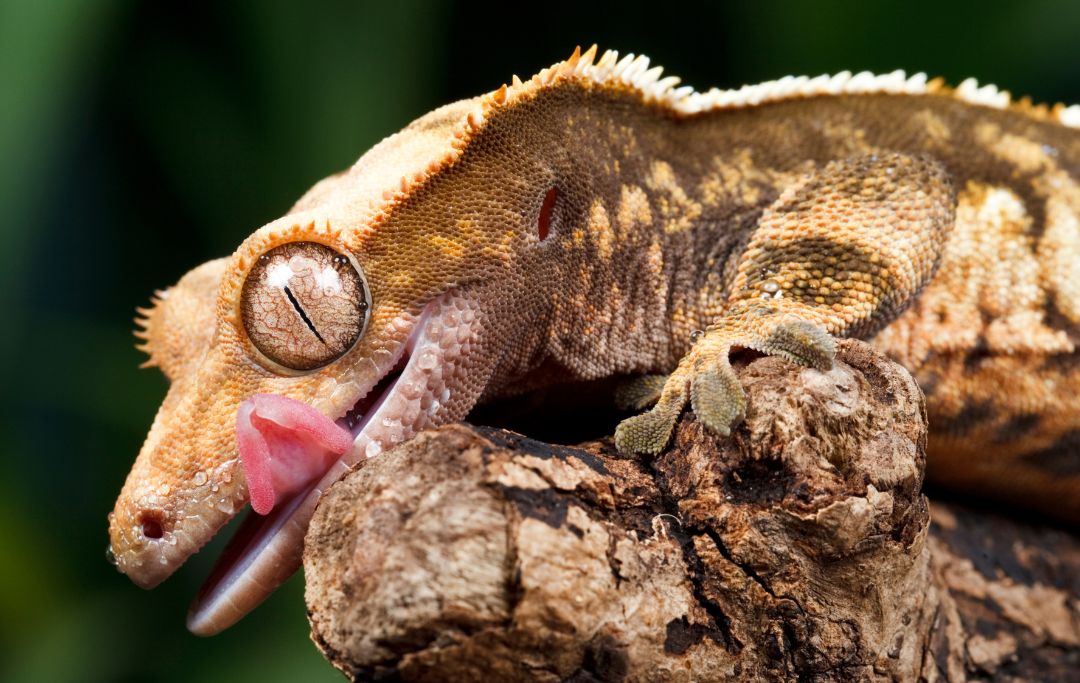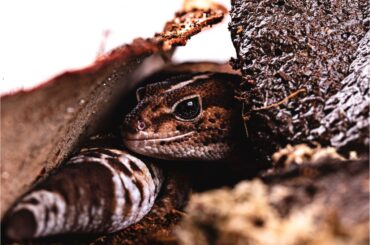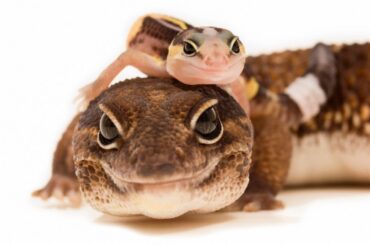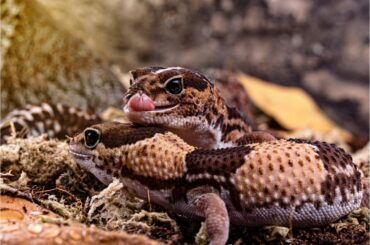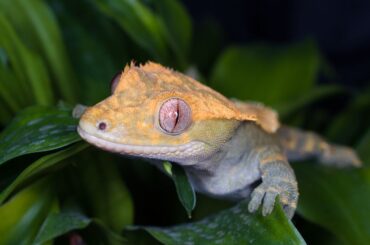Have you ever wondered why your crested gecko seems to yawn so often? That seemingly simple and adorable act holds more significance than meets the eye. Crested geckos, recognized for their beautiful look and distinctive behaviors, attract reptile fans with their yawning.
Imagine a small crested gecko on a branch in its terrarium yawning. It’s a sight that charms reptile owners and piques the interest of those new to gecko companionship. Beyond the cuteness factor, crested gecko yawning is a behavior that holds a special place in the hearts of those who observe it.
Curiosity often arises when we witness our crested geckos exhibiting behaviors that mirror our own, like yawning. Why do they do it? Is it just a simple stretch, or does it signify something more? This article invites you to explore the adorable yawns of crested geckos.
Normal Yawning Behavior
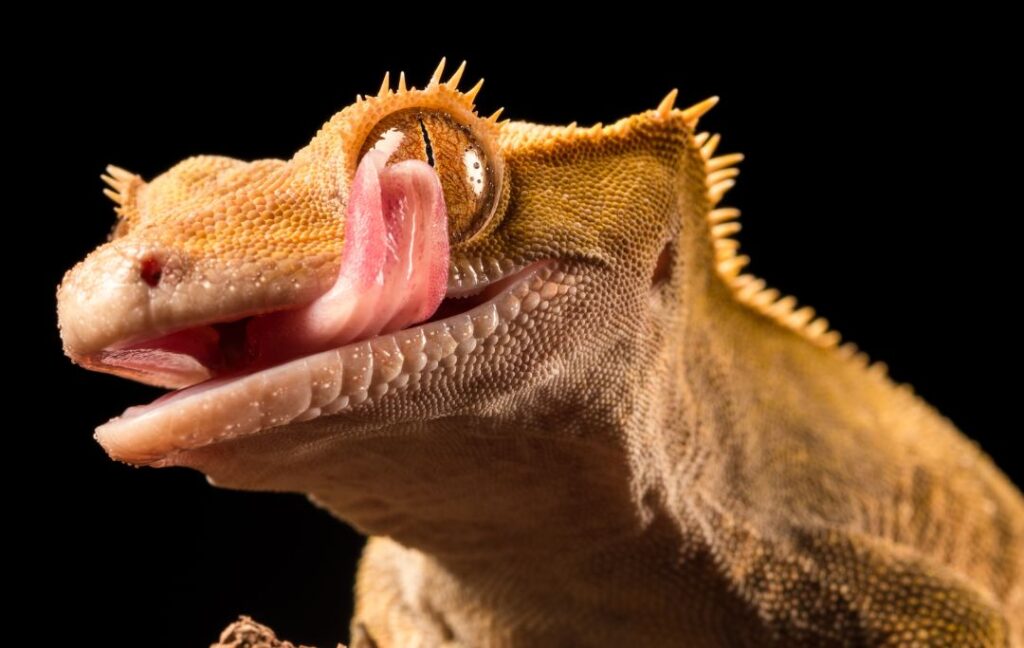
Yawning might seem like something only people do, but crested geckos, those cute little reptiles, do it, too! It’s normal for them. Imagine you just had a big, delicious meal. What’s the first thing you’d want to do? Probably let out a big yawn.
Crested geckos do the same thing. Like drinking water, yawning helps them clear their little throats after consuming their favorite delicious foods.
But yawning for these geckos is not just about post-meal satisfaction; it’s also their way of saying, “Good morning!” They use it as a wake-up call. When crested geckos wake up, they yawn to shake off lethargy and warm up for the day.
If you catch your gecko doing a little yawn, don’t fret! Yawning alone is usually no big deal, just part of their natural routine.
Reasons for Crested Gecko Yawning
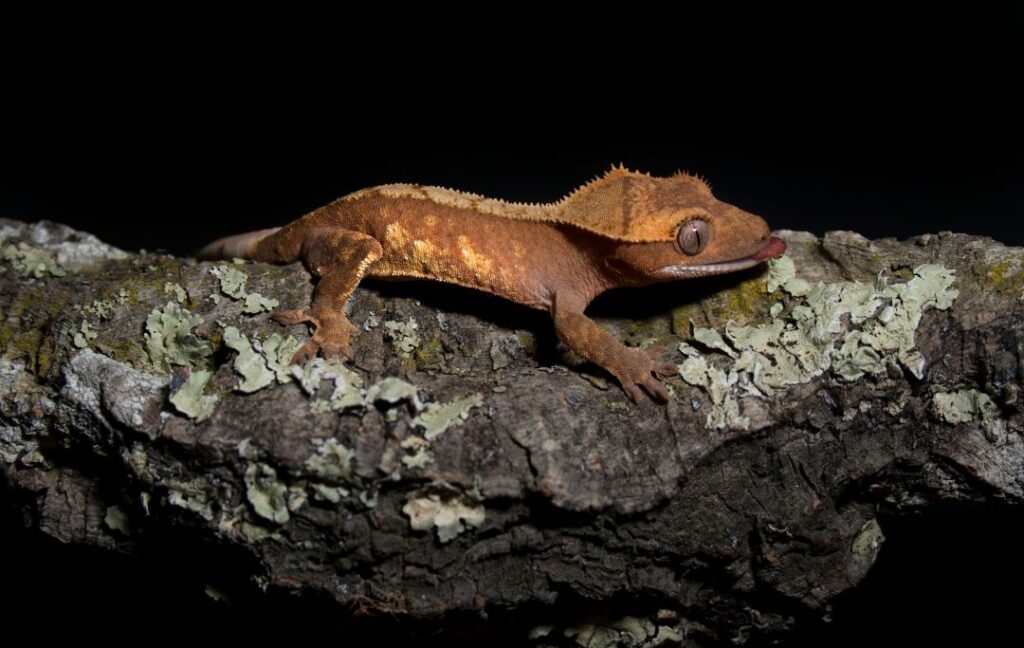
Yawning might be their way of telling us that everything is just fine, or it could signal that something isn’t quite right. This guide will help you understand your crested gecko’s yawns and movements.
Stress
Feeling stressed is like having different things trying to get your attention all at once. When geckos feel stressed, they often start to yawn.
Yawning helps them chill out and feel less anxious. It’s a lizard strategy to stay cool under pressure. Next time you see a gecko yawn, remember, they’re not just sleepy; they’re telling stress to take a hike!
Hunger
When crested geckos feel hungry, they might do something surprising—yawning! Like us when we’re tired, these little geckos yawn when their tummies are rumbling. If you see your gecko stretching its mouth wide open, it’s not necessarily sleepy; it’s probably hungry.
Giving them a balanced diet with different options keeps them happy and lively. They need a mix of insects, fruits, and exceptional gecko food to stay in tip-top shape.
Knowing when to offer them food is crucial. It’s like having a meal plan for your gecko buddy. Offer them a buffet of tasty treats, and they’ll be the happiest little geckos around. Keeping them well-fed and comfortable makes for some excellent gecko companionship!
Territorial Behavior
Crested geckos use yawning as a hidden language to communicate about their space. When you introduce a new gecko into their home, the resident gecko might yawn to say, “Hey, this is my spot.” It’s a polite gecko way of setting boundaries.
Sometimes, when you put two geckos together, they might yawn at each other. Yawning helps them sort things out and avoid disagreements. It’s their version of saying, “Let’s share this space peacefully.”
Think of hiding spots as gecko bedrooms or secret forts. Providing these hiding spots is super important because it gives each gecko a personal space to call their own. Having enough food and water for everyone is also crucial. Providing geckos with their own houses and plenty of supplies helps them get along without drama.
Obstruction
When sick, crested geckos may yawn more than usual, but not because they’re tired. If something is blocking their noses, like dust or mucus, they yawn to try and clear it out.
Sometimes, it’s not just a dusty nose causing the yawns. Crested geckos might also yawn if they have a problem deeper inside, like a respiratory tract infection. If these health issues aren’t taken care of, it could be a serious problem for our scaly friends, so getting them to the vet ASAP is super important!
Environmental Factors
Crested geckos are highly attuned to their surroundings, and changes in their environment can trigger yawning. Sudden temperature, lighting, or humidity changes can cause tension and yawning.
To keep your geckos safe and comfortable, keep their habitat stable. Monitor and alter the environment to improve well-being and reduce stress-related behaviors, like excessive yawning.
Reproductive Behavior
Yawning in crested geckos can also be linked to reproductive activities. During the breeding season, male and female geckos may exhibit yawning as part of their courtship behavior. Potential mates can communicate acceptance and closeness by yawning.
If you have many geckos, consider their reproduction and provide separate cages to prevent breeding. Understanding and respecting their instincts contribute to a healthier and more harmonious living environment.
Conclusion
Your crested gecko’s yawning may appear cute but could indicate a health issue. Don’t hesitate to consult a reptile vet if you notice any unusual patterns or changes in their yawning behavior. Stay vigilant and remember that a little yawn might be saying more than you think!
FAQs
What Does It Mean When A Crested Gecko Opens Its Mouth?
When a crested gecko opens its mouth, it can have various meanings. It may be a typical post-meal behavior, a way to say “good morning” when waking up, a stress response, or a social engagement. Observing other behaviors and the context of the gecko’s mouth opening can reveal its wants.
Is It Normal for My Gecko to Yawn Outside of Its Terrarium?
Yawning outside the terrarium might indicate different needs or emotions. To understand yawns, additional behavioral and historical factors must be observed. They may show hunger or stress.
Can I Do Anything to Reduce Stress-Related Yawning in My Crested Gecko?
Yes, creating a stable and comfortable environment is crucial. To reduce stress and yawning, provide hiding places, steady temperatures, and minimize unexpected changes.
Should I Be Concerned if My Gecko Yawns Frequently?
Frequent yawning, especially with respiratory symptoms, may suggest problems with health. Visit a reptile vet for a complete exam if your pet keeps yawning or acting strangely.
How Can I Support My Crested Gecko’s Natural Behaviors, Including Yawning?
A balanced diet of insects, fruits, and gecko food will promote your gecko’s natural behaviors. Give them hiding places, and stable environmental conditions, and respect their personal space, especially when introducing other geckos.

